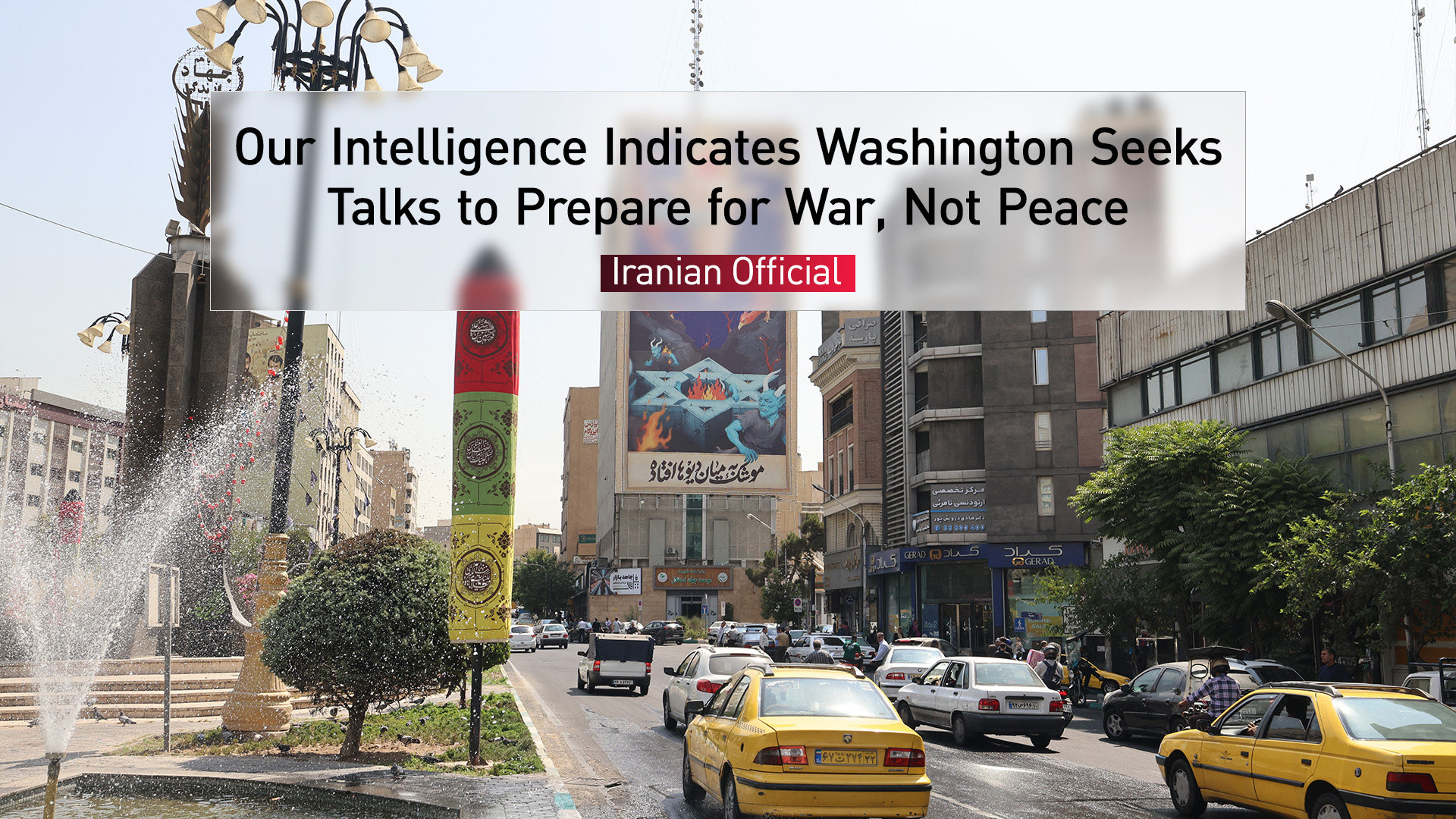Iran Claims US Seeks Talks as Pretext for War, Official Tells State Media
A senior Iranian official told state media Tehran believes the US seeks talks not for peace, but as a pretext to disarm Iran for war. The official set strict conditions for any new negotiations, including addressing Israel's nuclear program and demanding security guarantees.

By Kamaran Aziz
ERBIL (Kurdistan24) – A senior Iranian official has accused the United States of seeking negotiations as a deceptive ploy to disarm Tehran and prepare for a future war, not to achieve peace, according to an exclusive report by Iran’s state-affiliated Press TV on Thursday.
The unnamed official laid out a series of stark conditions for any future dialogue, signaling deep distrust of Washington's motives amid heightened regional tensions.
"Our intelligence indicates Washington seeks talks to prepare for war, not peace," the official told Press TV. "If so, we see no reason to waste time and would rather focus on preparing for conflict."
According to the report, the official stressed that Tehran will not engage in new negotiations under any previous framework and that any talks must be consistent with the current "security realities of the region."
They asserted that Iran believes the "purpose of the negotiations is to disarm Iran to make up for Israel’s weakness in the next war."
The source demanded "serious and practical guarantees" to ensure that any diplomatic process is not a "cover for security deception."
As preconditions for returning to the negotiating table, the official outlined several demands, including a focus on Israel’s nuclear program and its weapons of mass destruction.
“No one in the region will accept the disarmament of the region while such a bloodthirsty regime becomes more armed every day," the official was quoted as saying.
Other conditions reportedly include the "credible punishment of Israel and compensation to Iran," without which, the official warned, negotiations would "once again be a prelude to war."
The Press TV report also referenced past negotiations, stating that Tehran and Washington had conducted five rounds of indirect talks mediated by Oman before the process was "upended" by what it described as Israeli aggressions.
The official expressed a willingness to "give one more chance," but only if guarantees were provided that the U.S. envoy would be a "mediator for a solution, not a firestarter for war."
The comments reported by Press TV come against a backdrop of collapsed nuclear diplomacy and escalating military conflict across the Middle East.
Formal negotiations to revive the 2015 Iran nuclear deal, officially known as the Joint Comprehensive Plan of Action (JCPOA), broke down in 2022. The original deal had offered Iran sanctions relief in exchange for curbs on its nuclear program, but it unraveled after the U.S. unilaterally withdrew in 2018 under the Trump administration.
Since the collapse of talks, Iran has significantly advanced its nuclear enrichment activities, moving closer to weapons-grade capability, according to the International Atomic Energy Agency (IAEA).
The rhetoric of preparing for conflict reflects a volatile new phase in the region, which has recently seen unprecedented direct military strikes between Iran and Israel.
This shadow war has also played out through Iran's regional allies, with Houthi rebels disrupting global shipping in the Red Sea and other proxy groups engaging in attacks on U.S. and Israeli interests.
Adding to the tensions is a history of attacks on Iran's sensitive nuclear sites.
Iran’s nuclear program has been the target of significant sabotage and military action widely attributed to Israel. In April 2024, Israel reportedly launched a retaliatory strike targeting an air defense system near a major airbase in Isfahan, home to critical nuclear facilities. Key sites like the Natanz enrichment facility have suffered multiple explosions and cyberattacks, including the Stuxnet virus, which international reports often link to joint Israeli-U.S. operations.
Brewing tensions culminated in a 12-day war between Israel and Iran in June, 2025, during which the U.S. later joined, striking three of Iran’s uranium enrichment sites: the fortified Fordow facility, Natanz, and Isfahan.